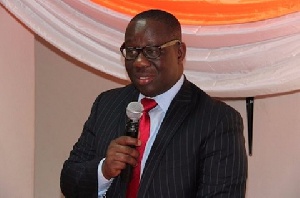The Supreme Court has dismissed an application for leave brought by Ernest Thompson, former Boss of the Social Security and National Insurance Trust (SSNIT), on the grounds that his circumstance for the application had not been met.
Thompson had gone to the Supreme Court with a motion on notice for special leave to enable him to appeal against the decision of the Court of Appeal.
Thompson and four others have been put before the court for allegedly causing financial loss to the state in the purchase of SSNIT’s Operational Business Suite (OBS) Project involving the procurement of high tech-servers, scanners, and printers among other things.
Thompson had indicated his opposition to the ruling of the trial judge and served notice to proceed to file a stay of proceedings at the Court of Appeal.
The Court of Appeal also dismissed the application for stay of proceedings hence proceeded to the Supreme Court to grant them special leave to enable them to appeal against the Court of Appeal’s decision.
He was praying the High Court to provide further and better particulars of charges against him in relation to Article 19(2)(d).
Article 19(2)(d) states that the accused person must be informed in detail of the charges preferred against him or her but that had been violated by the prosecution.
The accused person, through his Counsel, Mr Samuel Cudjoe, indicated that in the charge of willfully causing financial loss to the State, the State failed to mention those acts or omissions committed by the accused person.
Mr Cudjoe noted that the State’s failure to provide them with further and better particulars of the charges was like “tying his client’s hands behind him.”
According to him that was also going to make his client face difficulty in defending himself.
Mr Richard Gyambiby, an Assistant State Attorney, who was being led by Ms Frances William Addo, said the application intended to waste time and the tax payers’ money hence prayed the five-member panel of the Supreme Court to dismiss the application.
He said the Supreme had previously ruled on same subject matter and the prosecution had maintained its position over the years. The panel included Justices Sule Gbadegbe (Presiding), Justice Agnes Dodzie, Justice Marfu-Sau, Justice Nene Amegatcher, and Justice Professor Ashie Kotey.
General News of Wednesday, 16 October 2019
Source: ghananewsagency.org













